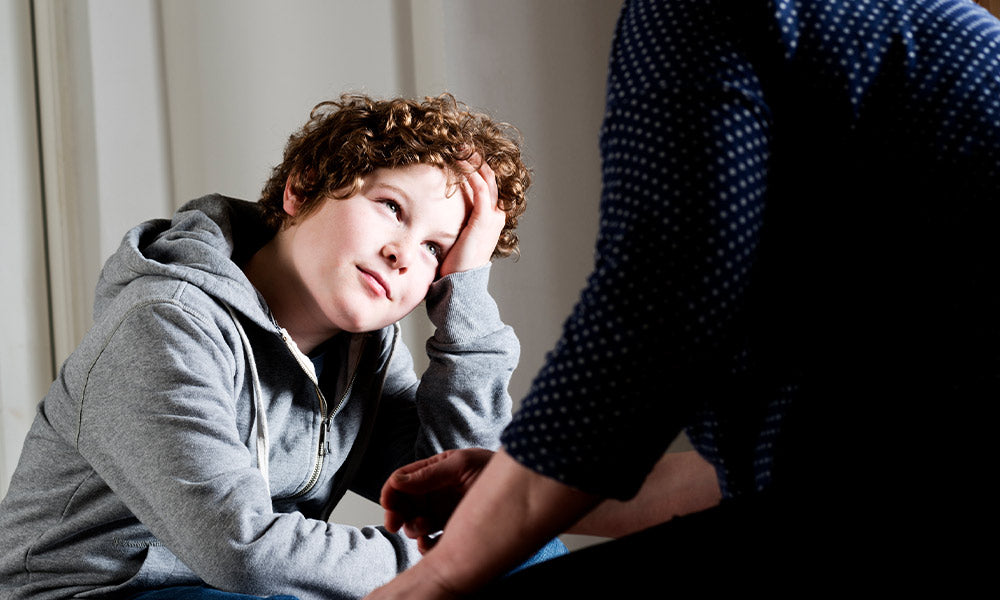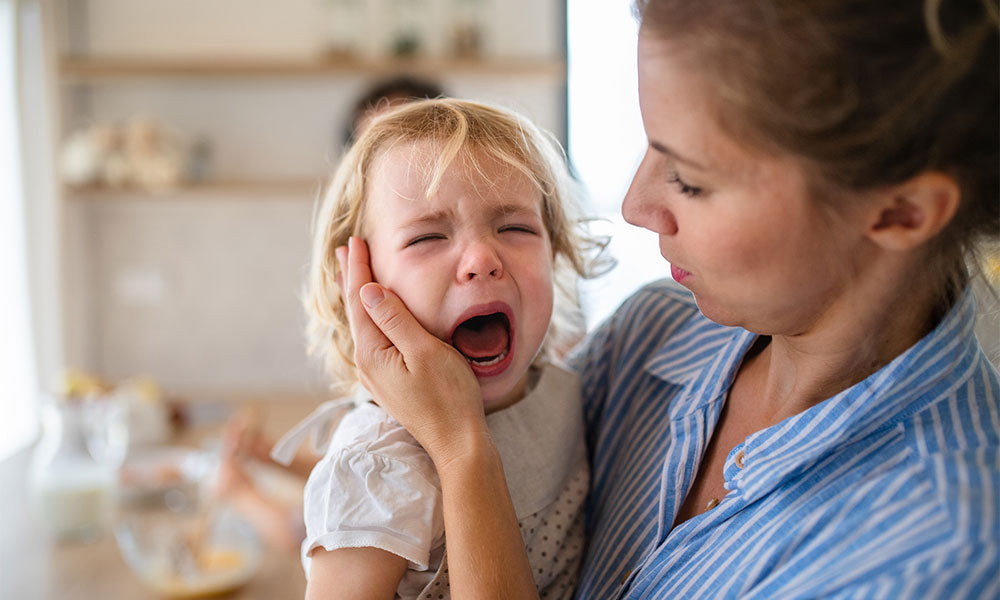As the first child to go through a mental health illness in my family, it was no surprise that my parents didn’t know how to react to the situation. One called it a phase. The other could not help but think of the worst possible outcomes.
It hurt that I didn’t receive the type of support I wanted from them until I realized that I didn’t understand my own depression diagnosis either. Therapy changed that for me, and with a better understanding, I realized there is no wrong age to introduce mental health to your children.
By the numbers
As described by the National Institute of Mental Health, “Children and teens can develop the same mental health disorders and conditions as adults.” While the causes may differ, mental health illnesses are just as a troubling factor in children as they are in adults.
The National Alliance of Mental Health Illness has found that approximately one in five youth aged 13 to 18 experience a mental health disorder at any point of their life. Children aged eight to 15 have a 13 percent chance of experiencing a mental health disorder. Approximately one in five adults experience mental illness in any given year.
When something’s wrong
While there is no way to dictate how a child should feel, it is important that they have the right to feel how they do feel. It’s okay for a child to feel sad when they are sad. It’s okay for them to feel happy when they are happy. When one of these emotions lasts longer than what may be considered ‘normal,’ it’s time to step in.
Are any of us truly happy all the time?
What is happiness anyway? For one child it might be playing with their video games every day after school. For another it might be playing with their best friend every weekend. When the child who plays video games every day only wants to play video games every day, that may be a red flag. Games are a normal thing for children, but when they decide to isolate themselves from social interactions, it is important to figure out why.
When the child who plays with their best friend every weekend only plays with that child every weekend, this can also be a red flag. Do they have other friends at school? Are they not able to find pleasure in any other activities?
The following are more warning signs as described by the National Institute of Mental Health.
Your child or teen might need help if he or she:
- Often feels very angry or very worried
- Can’t sleep or eat
- Feels grief for a long time after a loss or death
- Exercises, diets, and/or binge-eats obsessively
- Hurts other people or destroys property
- Has low or no energy
- Smokes, drinks, or uses drugs
- Feels like he/she can’t control own emotions
- Has thoughts of suicide
- Harms him/herself, such as cutting or burning his/her skin
- Thinks his/her mind is controlled or out of control
- Hears voices
In the Now
Sometimes it is not possible to talk to your children as much as you may want to everyday. Work may take you away from being there when they come home. Extracurricular activities may make take them away from home most of the afternoon. Whatever the case may be, talking to your children at any age about the power of their emotions is the way to introduce mental health to children.
Are they angry? Ask them why they are angry. If they don’t feel like sharing the cause of their anger with you, be angry with them. Share some of the things that make you angry, as silly as that may seem. Show them that any emotion is a real emotion.
What I needed from my parents
When I got diagnosed with depression during my first year of college, I planned to tell my parents about my condition. I never thought twice about it. Mental health was foreign to me, but I understood the severity of how I was feeling. It was like a cold or the flu. I knew the state of my health was not normal, but I never assumed it was abnormal. People have mental health illnesses.
So when I told my parents, I expected the same type of concern merited by any another health issue. What I got from my father instead was anger. He was angry because I was focusing on things that “didn’t exist.’’ He was angry because I was not enjoying college like I should have. He was angry because I told him I was depressed.
“What do you mean you’re depressed? Stop messing around. That doesn’t exist. It’s all in your head,” I remember him saying.
It got to the point where I went a few months without talking to him. We would never see eye to eye about what I was going through. It would have changed everything if he validated my emotions. It would have been okay that he didn’t understand them. All I wanted as a daughter was for him to listen to me.
My mother was at the opposite end of the spectrum. She believed that my depression would lead me to self harm. She worried about me constantly. She saw my emotions as the worst thing possible – something like cancer. While I appreciated her concern, I also wished she wouldn’t turn my condition into something extreme.
Both of my parents responses (that I ultimately found treatment for and have been in remission from) were a mix of good and bad things. Every emotion is a real emotion though. That is the most important thing to understand when it comes to mental health. Explaining that to your children could save everyone a lot of confusion and pain.



